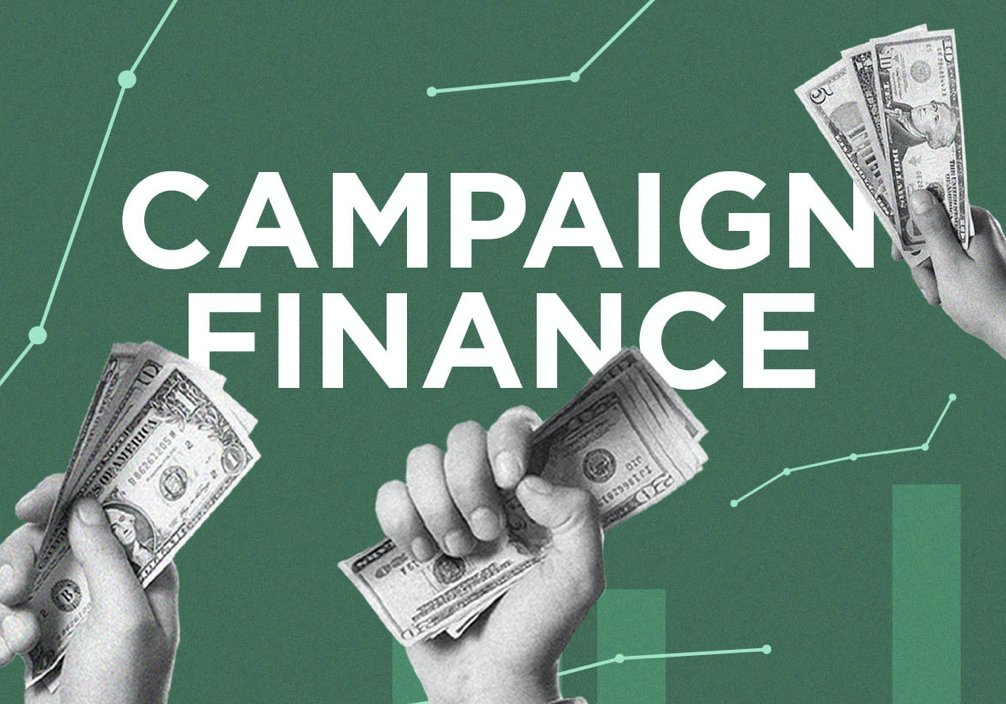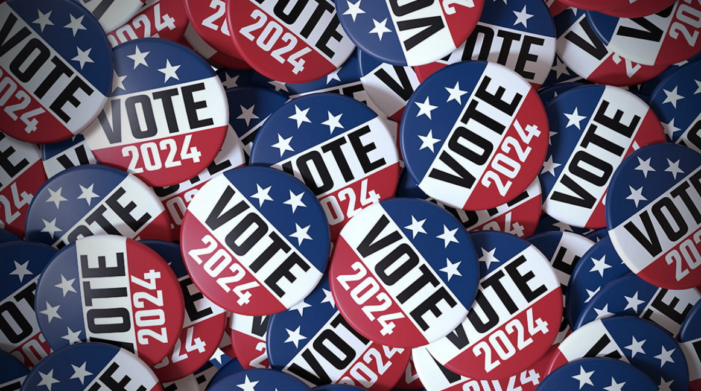AKA: No, no, yes, yes, yes, no, yes
Most Miami-Dade voters have a two-page ballot for the Nov. 5 election. That’s because there are six state constitutional amendments — all of which require a 60% or more approval rate — and a countywide non-binding question on wifi access.
In some cities, it could be three pages because of more referendums. It can be confusing and could cause a delay in the voting booth for those who vote in person. In Doral, it’s going to be a dizzying process (ore on that later).
Supervisor of Elections Christina White has urged voters to become familiar with the ballot questions so that they know how they will answer by the time they go to cast their votes. Early voting starts next week.
Here is Political Cortadito’s brief guide to the ballot questions and recommendations for those who want them.
AMENDMENT 1
Constitutional Amendment No. 1 would require partisan elections rather than non-partisan for members of a district school board starting with the 2026 election. This is a hard no. It is not a good idea for school board members — who have to work with federal and state electeds, both Republican and Democrat, to get money for our schools — to be elected in a partisan manner.
Read related: Voting so far in Miami-Dade: Low, low turnout on absentee or mail-in ballots
Some people might say that it’s already become a partisan body, with the governor appointing GOP loyalists to the boards in Miami-Dade and elsewhere in the state to further his extreme positions on education and “parental choice” at the local level. Just look at the race in district race between incumbent Mary Blanco, a Ron DeSantis appointee, and Maxeme “Max” Tuchman, an educator turned tech entrepreneur. Blanco’s ads have photos of her with DeSantis, Lt. Gov. Jeannett Nuñez and Sen. Marco Rubio, who have endorsed her, as if that were the qualifications a school board member needs.
Let’s not make this partisan division of our schools and students an official one. Vote no.
AMENDMENT 2
Voters haven’t heard much about constitutional Amendment No. 2, probably because it seems harmless and innocuous. The language on the ballot says it is “to preserve forever fishing and hunting, including by the use of traditional methods, as a public right and preferred means of responsibly managing and controlling fish and wildlife.”
It also says that the amendment “does not limit the authority granted to the Fish and Wildlife Conservation Commission,” but it’s unclear what it does do.

Critics, which include The Humane Society of the United States, say that “this intentionally vague and undefined” question could bring back archaic hunting devices, such as spears and steel-jawed leghold traps that cause animals unnecessary pain and trauma. That’s why they have long been prohibited.
There’s also a question of the rights, and safety, of private property owners. Language to prohibit hunters from trespassing on private land in pursuit of an animal was changed, increasing the risk to families that they get shot by a hunter they don’t even know is on their property.
Amendment 2 is really about a rollback of wildlife protections in favor of outdated and inhumane practices that we, as a society, have long abandoned. Let’s vote no.
AMENDMENT 3
Voters have heard a lot about this one. This is the marijuana amendment, which would legalize the purchase, possession and use of pot and marijuana products for adults 21 years and old. The state already allows for medical marijuana consumption, and everyone knows how loosey goosey that process is. So, what’s the big deal about making recreational marijuana legal and just cutting out all the BS?
Read related: Abortion rights, recreational pot make Florida ballot, may help Democrats
Supporters say it would generate at least $196 annually in state and local sales tax revenue once the retail market is open, based on what’s. happened in other states that legalized recreational pot. Funds the state could use for infrastructure and transportation and housing needs.
But the law would also prohibit people from growing their own weed in their yard or their bathtub and give all the economic benefit to the big marijuana producers, like Truelieve, which gave $95 million to the effort to put the amendment on the ballot. They stand to gain millions on this. Critics call it the monopoly amendment because other growers and distributors are locked out.

But that could be temporary. And aren’t these the same companies who have a seeming monopoly on medical marijuana? It seems like something that won’t pass muster in court — the monopoly part. So, let the lawsuits begin. This is a first step toward real marijuana freedom — let’s coin the word “weedom” — so vote yes.
AMENDMENT 4
This is possibly the worst written amendment on the ballot. The language is excrutiatingly biased. Not the first paragraph, which says “No law shall prohibit, penalize, delay, or restrict abortion before viability or when necessary to protect the patient’s health, as determined by the patient’s healthcare provider. This amendment does not change the Legislature’s constitutional authority to require notification to a parent or guardian before a minor has an abortion.”
But then they go and muck it up in the second paragraph:
“The proposed amendment would result in significantly more abortions and fewer live births per year in Florida. The increase in abortions could be even greater if the amendment invalidates laws requiring parental consent before minors undergo abortions and those ensuring only licensed physicians perform abortions.”
Uh, say what? The first paragraph actually said that the amendment does NOT change the requirement of “notification to a parent or guardian before a minor has an abortion.” So, which is it?
“There is also uncertainty about whether the amendment will require the state to subsidize abortions with public funds,” it says. Um, there’s no uncertainty. The amendment will not require the state to subsidize abortions.
Then they go for the pocketbook argument, in case morality didn’t work.
“Litigation to resolve those and other uncertainties will result in additional costs to the state government and state courts that will negatively impact the state budget. An increase in abortions may negatively affect the growth of state and local revenues over time. Because the fiscal impact of increased abortions on state and local revenues and costs cannot be estimated with precision, the total impact of the proposed amendment is indeterminate.”
Read related: Absentee or mail-in ballots begin to arrive in Miami-Dade voters’ homes
Ladra has never seen a ballot question like that. It reminds us, though, of the recent question to Miami voters about the gym equipment in Maurice Ferre Park.
This state amendment ballot language was challenged in court, but the Florida Supreme Court ruled that it was okay, even though it was written by anti-choice advocates of the six-week abortion ban. Don’t fall for it. Vote yes for women’s rights.
AMENDMENT 5
This amendment would apply an annual inflation adjustment for the property tax exemption applied to the value of the homestead between $50,000 and $75,000, mad every year beginning in January, but only if the Consumer Price Index increase and based on that percentage. There is no adjustment if the CPI decreases. Supporters say this helps alleviate the inflating cost of property taxes and insurance that help make housing unaffordable. Critics, who include the League of Cities, say it will shrink the tax base and revenue available to cities and counties by the millions, possibly affecting services.
Although there would be no impact to school district taxes, the estimated impact on non-school local government property taxes in the first fiscal year (2025-26) would be a reduction of almost $23 million in tax revenue, growing to an approximate reduction of $111.8 million in 2028-29.
There is some question as to how the cities and counties have used some of their tax funds — in subsidies to for-profit businesses to bring sports events or junkets to Japan or lawsuits to defend their violations of citizens rights. Maybe they need some motivation to do better. So, Ladra says protect the taxpayer and vote yes.
AMENDMENT 6
This amendment would repeal the requirement in the state constitution that requires public financing for campaigns of candidates for elective statewide office who agree to campaign spending limits. It seems like a no-brainer. Taxpayers shouldn’t pay for anybody’s political campaign, regardless of whatever promises they make.

Most of the liberal or “progressive” organizations and labor unions are against this. Their argument is that it won’t allow regular folks to run for office, giving wealthy people and those in the pockets of special interests an advantage. It’s so funny to hear special interests talk about other special interests. What they need to do is put their money where their mouths are and back the best candidates who aren’t always necessarily (read: almost never) the best funded candidates.
But donations are also a way to show support. If you want to be elected, and you expect voters to believe that you can be effective in Tallahassee, where you have to convince colleagues to support your measures and agenda, then you need to raise the funds yourself and appeal to those who have the wherewithal to help.
Vote no on this one.
MIAMI-DADE NON-BINDING QUESTION
“Should Miami-Dade County take action to expand free public Wi-Fi access countywide, including advocating for any necessary changes to state or federal law?”
That seems like a real no-brainer and the answer is duh. It’s so obvious that the question, sponsored by Miami-Dade Commissioner Kionne McGhee, was approved 12-0 in July.
Already the county provides for free wifi on Metrorail and at Miami-Dade parks and libraries — where you can still find moms and dads (mostly moms) in the parking lot so their kids can do homework online.
Universal wifi is just something whose time has come. Vote yes.
Not that Ladra has any confidence a yes vote will matter on a non-binding question. We still remember the betrayal after the voter’s overwhelming approval of the Pets’ Trust initiative.

